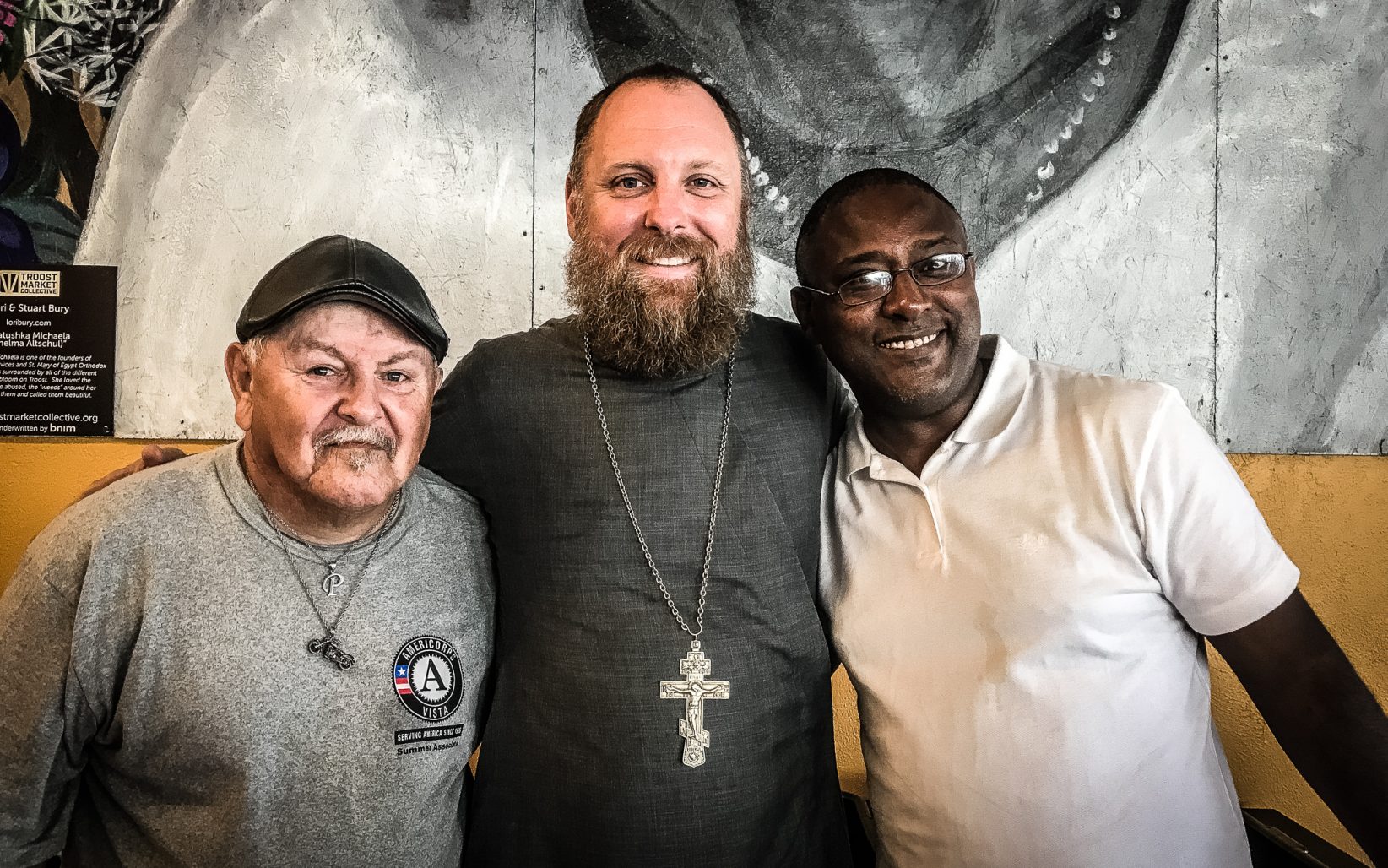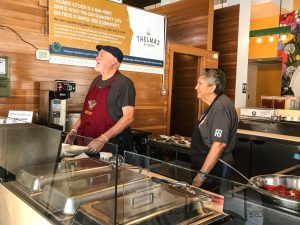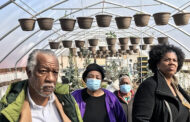Commanded by Scripture, David Altschul journeyed into parts unknown, said his successor, Father Justin Mathews.
Stay or go? Social entrepreneurism at an intersection
• Defiant anti-gentrification voice: Clock is ticking on east side neighborhoods, Movement KC
• Troostapalooza aims to shed the old skin of city’s racial dividing line, says Kemet Coleman
• Operation Breakthrough bridge over Troost symbolizes ‘real community’ at an intersection
• Thelma’s Kitchen cooks up pay-what-you-can cafe concept to preserve community
In the mid-1980s, a philanthropic pull tugged at the heart of Altschul — a white, insurance salesman from Johnson County — and eventually led him into the distressed, history-rich neighborhoods that lined Troost Avenue on the east side of Kansas City, recalled Mathews, executive director of Kansas City based Reconciliation Services.
“He came with a group of friends down to Midtown and ended up at the Lasalle Apartments,” Mathews said, as he explained the community-wide needs Altschul noticed along the way. “It was the Reagan years and the mental health institutions had been closed. The community mental health system was just sort of getting off the ground, but it was already overwhelmed.”
As a mental health crisis began to consume Troost, food insecurity and poverty grew in tandem, Mathews said. Altschul found himself in a position to adopt an attitude of Christ-centered compassion; a commitment to love and serve the poor, he explained.
Through his volunteer work at the Lasalle Apartments, Altschul eventually met his wife — Thelma Gardner. Together, the couple founded Reconciliation Ministries in the early-1990s, Mathews said.
“Their first month of marriage — [Altschul] told me this story — they had 20 people living with them in their home,” he said. The couple eventually purchased a building on the corner of 31st and Troost — known today as the home to Reconciliation Services and Thelma’s Kitchen — and offered the community social services, food and hospitality, and church services coupled with Bible study.
Today, Reconciliation Services has established itself as a beacon of hope for the Troost community, Mathews said.
“[Reconciliation Services] really is careful to tie together not just poverty and social services, but actually to look at the root of poverty, which is trauma,” he said.
With redevelopment increasingly creeping into the area, Mathews said, the work of Reconciliation Services could become more valuable than ever. He worries developers and some community members are only concerned with surface-level improvements.
“If we only address the blight of the buildings and if we don’t address the blight of the heart that created the conditions of poverty in the first place, then we’re not becoming a better city,” Mathews said, declaring that many people in Kansas City have developed a skewed image of Troost, mislabeling the area as scary.
Mathews remains concerned that decades worth of work to improve area schools, facilitate transportation equity, and develop a strong system of social service resources could easily be washed away by a storm of misguided redevelopment, focused on integrating new, gentrified blood into the area, he said.
“Although Troost is looking nicer these days, what’s actually happening is the crunch on the poor is getting more of a tight squeeze and it’s the same families and their children and grandchildren that were persecuted under the time in Kansas City when an African American family could not live south of 31st street or west of Troost,” he said, highlighting the fact that many families could be forced out of their homes in the area because they don’t own them.
As the modern identity of the racially divided community takes shape, Mathews said, it’s Reconciliation Services and the work of other nonprofit social services organizations that will bear the cross of realistic rehabilitation passed onto them by the likes of Altschul.
“There’s a need right now for us to come together and cultivate a community that cares about racial and economic reconciliation so that we can transform not just Troost, but that we can begin to tear down the racial and economic divide in Kansas City,” Mathews said.
He and his colleagues plan to act as agents of change, he said, further equipping themselves to recognize the root cause of social problems and work on the ground, inviting the people of their community to work together as a tool for establishing a sustainable quality of life, as the culture of the area is reimagined.
“It takes moral men and women both in the nonprofit community, the startup community, the business community, and the religious community to fix amoral men and women — to make moral change and to push the market into moral ways so that all ships rise together,” he said.
Reconciliation Services’ people-first approach — first initiated by Altschul — will help preserve the neighborhoods’ history and allow an attitude of progress to take hold as the roots of the future are planted, Mathews said.
Click here to read more from Startland’s original reporting on the redevelopment of Troost.
Stay or go? Social entrepreneurism at an intersection
• Defiant anti-gentrification voice: Clock is ticking on east side neighborhoods, Movement KC
• Troostapalooza aims to shed the old skin of city’s racial dividing line, says Kemet Coleman
• Operation Breakthrough bridge over Troost symbolizes ‘real community’ at an intersection
• Thelma’s Kitchen cooks up pay-what-you-can cafe concept to preserve community








































